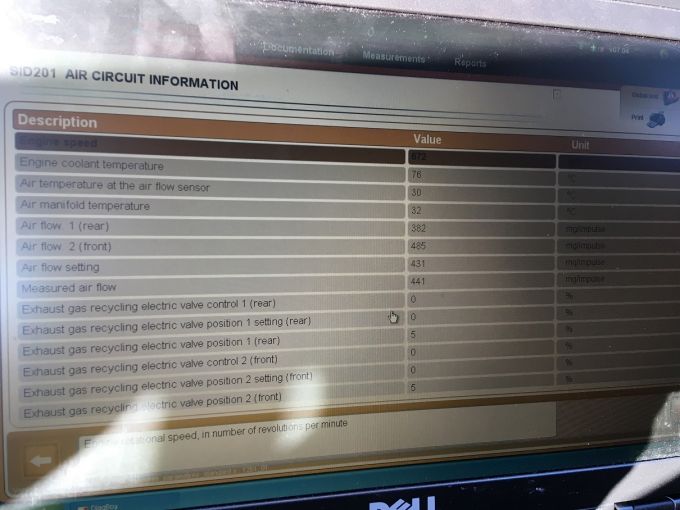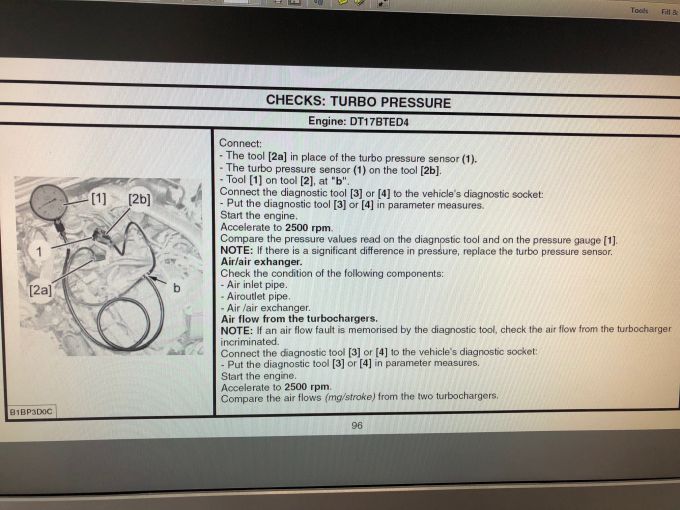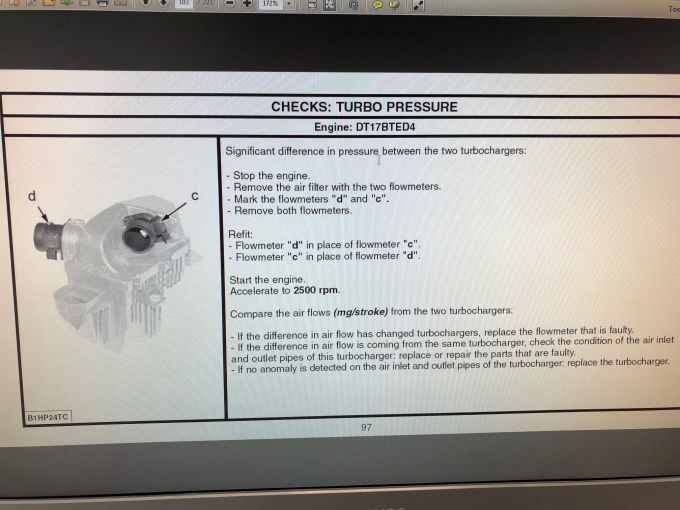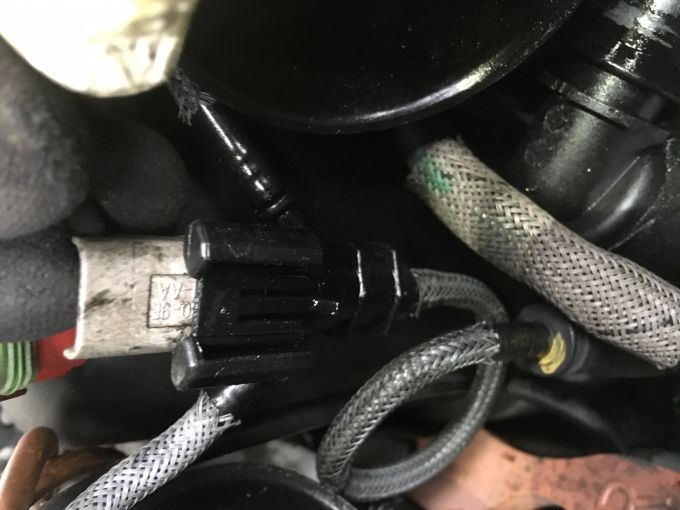| C6owners :: Forums :: C6 Support :: The Garage |
<< Previous thread | Next thread >>
|
2.7 HDI hesitation (not sure if its correct word) |
    Please Register to enjoy additional Member Benefits |
| Author | Post | ||
joopajaa
 
|
|
||
 Member No: #3261
Location: Byroslavia, FIN |
Hi I have a large DIY job coming in a form of a cam belt change. I also ordered the thermostat housing and new aux belt etc. Anyway my car has a little hesitation specially in cold weather. I can hear turbo whistle also when cold. My intercooler hoses are oily - at least there is some on the joints. So the question is: is there some IC piping that is generally failing with these? I guess I can check quite a lot of places when I remove the stuff for cam belt. I have a feeling there is a failed plastic intecooler or intake piping on my car (the whistle). The car does not smoke or eat oil - even with cold engine so I think the turbos should be quite OK. There is 230 tkm on the clock. I have blocked EGRs earlier with ECU tuning done also. No problems earlier (well the ECU tuning was done do override EGR-valve fault). |
||
|
|
|||
C6Dave
 
|
|
||
    Member No: #1
Location: Northumberland |
My intercooler hoses are oily - at least there is some on the joints I asked My local car mechanic about the intercooler hose leak where it connects to the cooler itself because of the New MOT regs and oil leaks and he said 'they all do that' so there isn't an MOT problem. Turbo whistle tends to be from the turbo itself, not the hoses as far as I am aware, but someone may know different..... but check that the oil feed to the turbo is clear, most turbo fails on the C4 forum were down to blocked oil feed pipes. |
||
|
|
|
||
joopajaa
 
|
|
||
 Member No: #3261
Location: Byroslavia, FIN |
Update: this problem is present also when warm engine. Low speed or high speed. Seems the problem is on 1600-1800rpm. Seems better on high rpm. Can it be a faulty or clogged injector? To better describe: when cruising stable speed you can feel the engine doing lower and higher rpm so the whole car feels like you have oval shaped tyre. Wobble? Tremble? Shudder? Not sure the right word.. This is not "hesitation" in a sense of accelerating - engine feels OK and no delays etc on response (well at least no more than common with citroen's AM6 ecu tuning). This can even be gearbox related I think. Maybe I now use my 12L of 3309 Mannoil.. I have to do some lexianing - any ideas how to test injectors with it? |
||
|
|
|
||
arconell3
 
|
|
||
  Member No: #922
Location: Kalkar |
The oily intercooler hoses are caused by the sump ventilation (oil-gas separator) not working properly/dirty/clogged up. The oil eventually gets into the butterfly housing, fouling up the whole air intake system. All of which of course negatively influences combustion quality, making things progressively worse. The gearbox, which is among other things, engine torque controlled, reacts nervously to the resulting small variations in the torque/rev counts, causing a rhythmic opening and closing converter clutch. Clean all the above mentioned parts, including the swirl valves, put in new MAF sensors and air filter, and once cleaned, use premium diesel fuel only to keep them clean. Regards, Robert |
||
|
|
|
||
321dave
 
|
|
||
  Member No: #614
Location: Dublin |
arconell3 wrote ... The oily intercooler hoses are caused by the sump ventilation (oil-gas separator) not working properly/dirty/clogged up. The oil eventually gets into the butterfly housing, fouling up the whole air intake system. All of which of course negatively influences combustion quality, making things progressively worse. The gearbox, which is among other things, engine torque controlled, reacts nervously to the resulting small variations in the torque/rev counts, causing a rhythmic opening and closing converter clutch. Clean all the above mentioned parts, including the swirl valves, put in new MAF sensors and air filter, and once cleaned, use premium diesel fuel only to keep them clean. Regards, Robert That explains a lot, I replaced the sensor in the butterfly housing due to a crack and it was putting up engine codes for air pressure. It was all caked up badly. In fact I need now to clean the butterfly housing. Is the problem on the top of the engine where hoses meet at a venting box (beside the oil filter housing)? |
||
|
|
|
||
arconell3
 
|
|
||
  Member No: #922
Location: Kalkar |
321dave wrote ... That explains a lot, I replaced the sensor in the butterfly housing due to a crack and it was putting up engine codes for air pressure. It was all caked up badly. In fact I need now to clean the butterfly housing. Is the problem on the top of the engine where hoses meet at a venting box (beside the oil filter housing)? Yes, that should be the venting tubes coming from the 2 cylinder heads. Regards, Robert |
||
|
|
|
||
joopajaa
 
|
|
||
 Member No: #3261
Location: Byroslavia, FIN |
I have a suspect now: MAF senser (rear). There is a large difference on those 2. I tried to clean them with electric cleaner without any luck. I'm not sure if its related but I have deleted the butterfly valve (and EGR's) and also used a intake cleaner solvent but the intake did not look too messy anyway before that.  EDIT: it seems 2.7 has same MAF sensor as 2.0 Hdi.. Maybe I try one from my wifes car. This can also be the leak in intake piping I suspected in the first place - it would explain the whistle and the MAF reading error. |
||
|
|
|
||
arconell3
 
|
|
||
  Member No: #922
Location: Kalkar |
Compare the MAF sensor part numbers first before swapping the 2.2>2.7. Otherwise the MAF values may be different. The turbo whistle most likely is also caused by oily deposits on the turbo compressor and probably on the turbine wheel as well. Almost all 2.7's I have heard that use regular diesel fuel have this whistle. Most prominent on a cold engine, but still audible when warm. Regards, Robert |
||
|
|
|
||
joopajaa
 
|
|
||
 Member No: #3261
Location: Byroslavia, FIN |
arconell3 wrote ... Compare the MAF sensor part numbers first before swapping the 2.2>2.7. Otherwise the MAF values may be different. The turbo whistle most likely is also caused by oily deposits on the turbo compressor and probably on the turbine wheel as well. Almost all 2.7's I have heard that use regular diesel fuel have this whistle. Most prominent on a cold engine, but still audible when warm. Regards, Robert Yes I will compare. Also I will first try to swap them from front to rear to see if the reading is from the piping or faulty MAF. |
||
|
|
|
||
vaho
 
|
|
||
 Member No: #2228
Location: Tallinn |
If I remember it correctly you must check the airflow at 2500 RPM. It should roughly be the same front and back. At idle it may be different and on the picture there is not much difference to be worried. To diagnose the MAF just swap them with each other, if the low flow follows the MAF then it is bad, if not, there is no need to replace it. | ||
|
|
|
||
arconell3
 
|
|
||
  Member No: #922
Location: Kalkar |
vaho wrote ... If I remember it correctly you must check the airflow at 2500 RPM. It should roughly be the same front and back. At idle it may be different and on the picture there is not much difference to be worried. To diagnose the MAF just swap them with each other, if the low flow follows the MAF then it is bad, if not, there is no need to replace it. Hmm, I don't necessarily agree, the correct MAF values are indeed very important for your engines' health. MAF sensors have a tendency to A) become dirty in time and use, resulting in a (sometimes significantly) reduced airflow, without the BSI being aware of any faulty measurement, and B) while driving the airflow changes continuously and often rapidly. A dirty MAF sensor element cannot register these changes quick enough, which may result in inexplicable little hiccups while driving. It is one of those things where penny wise indeed means pound foolish. Regards, Robert |
||
|
|
|
||
vaho
 
|
|
||
 Member No: #2228
Location: Tallinn |
Yes they are important, no argument there but the checking procedure is correct:  |
||
|
|
|
||
joopajaa
 
|
|
||
 Member No: #3261
Location: Byroslavia, FIN |
vaho wrote ... If I remember it correctly you must check the airflow at 2500 RPM. It should roughly be the same front and back. At idle it may be different and on the picture there is not much difference to be worried. To diagnose the MAF just swap them with each other, if the low flow follows the MAF then it is bad, if not, there is no need to replace it. I did try with higher revs when I took the picture and the difference was there. I'll soon try to find time for this subject. |
||
|
|
|
||
joopajaa
 
|
|
||
 Member No: #3261
Location: Byroslavia, FIN |
OK today I switched front <-> rear MAF and the rear is still lower. A leak on piping I suspect.. I'm doing now timing belt + thermohousing + maybe cleaning intakes (quite stuffed) + maybe taking starter out to clean it inside (weak power imho) -> so maybe I dig this a little deeper also. | ||
|
|
|
||
joopajaa
 
|
|
||
 Member No: #3261
Location: Byroslavia, FIN |
Question: what is this? Its leaking fuel. Part no? Its under/behind the intake Y, above the thermo housing. EDIT: Its part no. 1574E8. It seems I need to change the whole piping :/ |
||
|
|
|
||
Go to page >>
|
|
 User Colour Key: User Colour Key:Head Administrator, Administrator, C6 owner, Technical Expert, C6 Premier Discount Club |
|